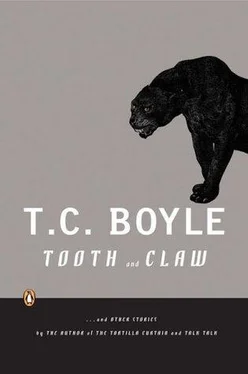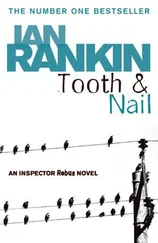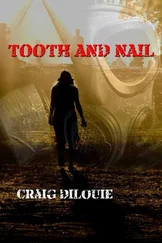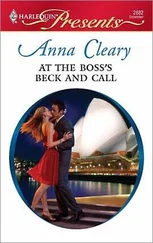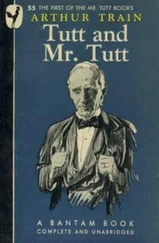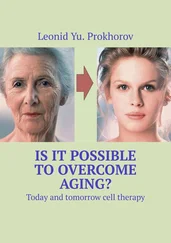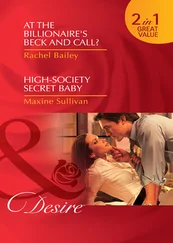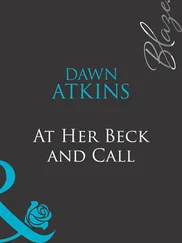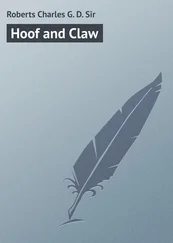She stirred the pot, went to set the cigarette in the ashtray on the stove and saw that there was another there, already burning and rimmed red with lipstick. “Without dinner?” (I have to give her her due here — she loved me, her only son, and my father must have loved me too, in his own way, but I didn’t know that then, or didn’t care, and it’s too late now to do anything about it.)
“Yeah, I might eat out, I guess. With Cole.”
“Who?”
“Cole Harman. He was in high school with me?”
She just shrugged. My father said nothing, not hello or goodbye or you look half-starved already and you tell me you’re going to miss dinner? The TV emitted the steady whipcrack of small-arms fire, and then the correspondent came on with the day’s body count. Four minutes later — the bells, the boots, a wide-collared shirt imprinted with two flaming outsized eyeballs under the greasy jacket and my hair kinked up like Hendrix’s — and I was out the door.
“HEY,” I SAID, rapping at the window of the Bug. “Hey, it’s me.”
Cole looked up as if he’d been asleep, as if he’d been absorbed in some other reality altogether, one that didn’t seem to admit or even recognize me. It took him a moment, and then he leaned across the passenger’s seat and flipped the lock, and I went round the car and slid in beside him. I said something like, “Good to see you, man,” and reached out for the soul shake, which he returned, and then I said, “So, what’s up? You want to go to Chase’s, or what?”
He didn’t reply. Just handed me the tight white tube of a joint, put the car in gear and hit the accelerator with the sound of a hundred eggbeaters all rattling at once. I looked back to see my house receding at the end of the block and felt as if I’d been rescued. I put the lighter to the joint.
The night before we’d gone to Chase’s, a bar in town I’d never been to before, an ancient place with a pressed-tin ceiling and paneled booths gone the color of beef jerky with the smoke of a hundred thousand cigarettes. The music was of the moment, though, and the clientele mostly young — women were there, in their low-slung jeans and gauzy tops, and it was good to see them, exciting in the way of an afterthought that suddenly blooms into prominence (I’d left a girlfriend behind at college, promising to call, visit, write, but long distance was expensive, she was five hundred miles away and I wasn’t much of a writer). My assumption — my hope — was that we’d go back there tonight.
But we didn’t. Cole just drove aimlessly past bleached-out lawns and squat houses, down the naked tunnels of trees and into the country, where the odd field — crippled cornstalks, rotting pumpkins — was squeezed in among the housing developments and the creep of shopping malls. We smoked the joint down to the nub, employed a roach clip and alternated hits till it was nothing but air. An hour stole by. The same hits thumped through the radio, the same commercials. It was getting dark.
After a while we pulled up at a deserted spot along a blacktop road not two miles from my house. I knew the place from when I was a kid, riding my bike out to the reservoir to fish and throw rocks and fool around. There was a waist-high wall of blackened stone running the length of a long two blocks, and behind that a glimpse of a cluster of stone cottages through the dark veins of the trees. We’d been talking about something comforting — a band or a guitar player — and I’d been drifting, wheeling round and round the moment, secure, calm, and now suddenly we were stopped out on the road in the middle of nowhere. “So, what’s the deal?” I said.
A car came up the street in the opposite direction and the lights caught Cole’s face. He squinted, put a hand up to shield his eyes till the car had passed, and he craned his neck to make sure it was still moving, watching for the flash of brake lights as it rounded the curve at the corner behind us and vanished into the night. “Nothing,” he said, a spark of animation igniting his voice as if it were a joke — the car, the night, the joint—“I just wanted you to meet some people, that’s all.”
“What people? Out here?” I gave it a beat. “You don’t mean the little people, do you? The elves? Where are they — crouching behind the wall there? Or in their burrows, is that where they are — asleep in their burrows?”
We both had a laugh, one of those protracted, breast-pounding jags of hilarity that remind you just how much you’ve smoked and how potent it was. “No,” he said, still wheezing, “no. Big people. Real people, just like you and me.” He pointed to the faintest glow of light from the near cottage. “In there.”
I was confused. The entrance to the place — the driveway, which squeezed under a stone arch somebody had erected there at some distant point in our perfervid history — was up on the cross street at the end of the block, where the car had just turned. “So why don’t we just go in the driveway?” I wanted to know.
Cole took a moment to light a cigarette, then he cracked the door and the dark pure refrigerated smell of the night hit me. “Not cool,” he said. “Not cool at all.”
I MADE A REAL EFFORT the next day, and though I had less than three hours’ sleep, I made homeroom with maybe six seconds to spare. The kids — the students, my charges — must have scented the debauch on me, the drift away from the straight and narrow they demanded as part of the social contract, because they were more restive than usual, more boisterous and slippery, as if the seats couldn’t contain them. There was one — there’s always one, memorable not for excellence or scholarship but for weakness, only that — and he spoke up now. Robert, his name was, Robert Rowe. He was fifteen, left back once, and he was no genius but he had more of a spark in him than the others could ever hope for, and that made him stand out — it gave him power, but he didn’t know what to do with it. “Hey, Mr. Caddis,” he called from the back of the room where he was slumped into one of the undersized desks we’d inherited from another era when the average student was shorter, slimmer, more attentive and eager. “You look like shit, you know that?”
The rest of them — this was only homeroom, where, as I’ve indicated, nothing was expected — froze for a moment. The interaction was delicious for them, I’m sure — they were scientists dissecting the minutest gradations of human behavior: would I explode? Overheat and run for the lavatory like Mr. James, the puker? Ignore the comment? Pretend I hadn’t heard?
I was beat, truly. Two nights running with less than three hours’ sleep. But I was energized too because something new was happening to me, something that shone over the bleakness of this job, this place, my parents’ damaged lives, as if I’d suddenly discovered the high beams along a dark stretch of highway. “Yeah, Robert,” I said, holding him with my eyes, though he tried to duck away, “thanks for the compliment.” A tutorial pause, flatly instructive. “You look like shit too.”
The cottage, the stone cottage on the far side of the stone wall in the featureless mask of the night that had given way to this moment of this morning, was a place I felt I’d come home to after a long absence. I’d been to war, hadn’t I? Now I was home. How else to describe it, what that place meant to me from the minute the door swung back and I stepped inside?
I hadn’t known what to expect. We vaulted the stone wall and picked our way through a dark tangle of leafless sumac and stickers that raked at our boots and the oversized flaps of our pants, and then there was another, lower wall, and we were in the yard. Out front was a dirt bike with its back wheel missing, skeletal under the porch light, and there were glittering fragments of other things there too, machines in various states of disassembly — a chain saw minus the chain, an engine block decorated with lit candles that flickered like votives in the dark cups of the cylinders, a gutted amplifier. And there was music. Loud now, loud enough to rattle the glass in the windowpanes. Somebody inside was playing along with the bass line of “Ob-La-Di, Ob-La-Da.”
Читать дальше
